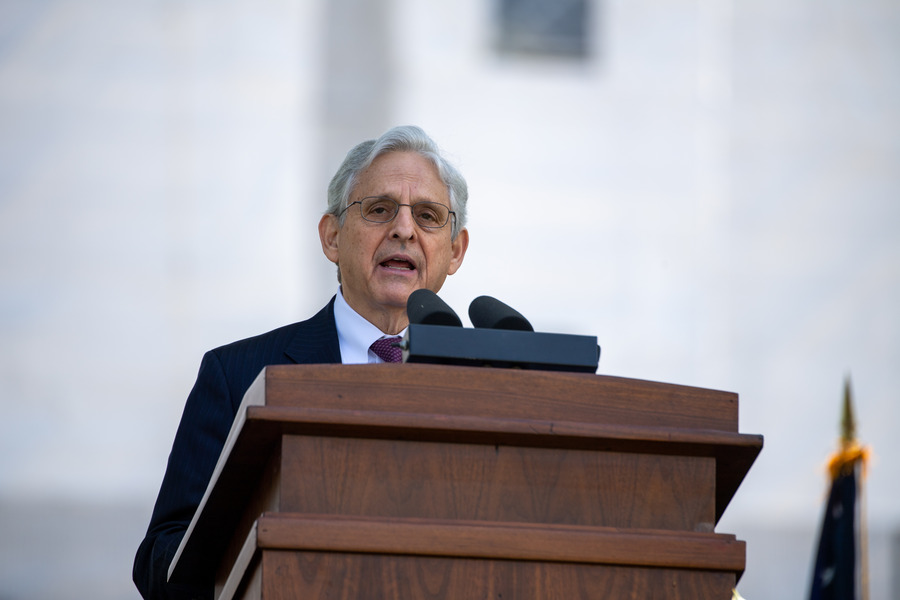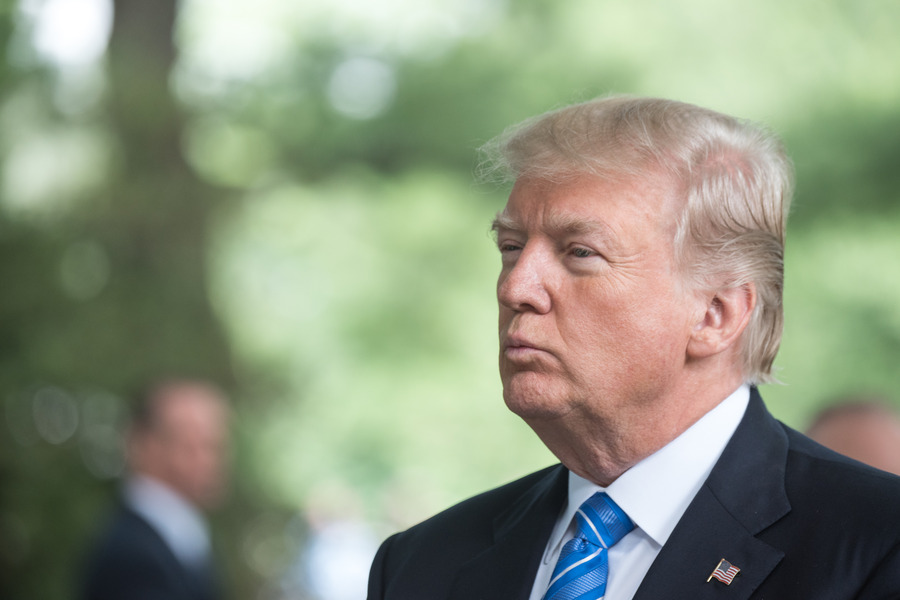Public Opinion on Trump's Travel Ban
Writing for the New York Times in December 2015, Peter Spiro argued that candidate Trump’s proposed religious-based immigration ban—although reprehensible—may pass constitutional muster because of the court’s history of extreme deference to the political branch on immigration.
Published by The Lawfare Institute
in Cooperation With

Writing for the New York Times in December 2015, Peter Spiro argued that candidate Trump’s proposed religious-based immigration ban—although reprehensible—may pass constitutional muster because of the court’s history of extreme deference to the political branch on immigration. And yet, Spiro wrote, such a policy would raise the issue of what, exactly, we mean when we say something is “constitutional” in the first place, as “politicians, the legal community, scholars and the public at large are all a part of our continuing constitutional conversation.” Even if upholding such reprehensible policy has a judicial pedigree, Spiro reasoned, clear popular consensus can establish constitutional norms, with or without the courts.
In a recent Lawfare post on the role of the courts in checking President Trump’s travel ban, Spiro argues that the current political environment of opposition to the order—coupled with the spectacularly sloppy fashion in which the executive order was drafted—may empower the courts to place meaningful and unprecedented constraints on executive branch regulation of immigration.
Spiro’s analysis puts something of a premium on the state of American public opinion at the intersection of immigration and national security. To this end, a CNN-ORC poll released Friday afternoon provides some degree of analytical precision.
A slim majority (53 percent) of the population opposes the Trump travel ban, including a whopping 88 percent of self-identified Democrats. While opponents are well organized and highly visible—showing up in droves at airports around the country to protest the order—this population is hardly representative. In fact, 88 percent of Republicans favor the ban, with a solid majority (58 percent) reporting that they would like to see the ban expanded. Just twelve percent of Republican oppose the travel ban—a fact that might help to explain why so many Republican lawmakers have stayed mum on the President's actions.
Americans are similarly divided when asked about the order as a reflection of American values. 49 percent (including 81 percent of Democrats) say it does more to harm values by preventing those seeking asylum from entering the United States, while 43 percent (including 80 percent of Republicans) say it protects Americans values by keeping out people who don’t support them.
Framed as a matter of national security, 41 percent of Americans (and 83 percent of Republicans) believe that the travel ban makes the U.S. safer. This position persists although it flies in the face of a mounting body of expert analysis suggesting the ban is likely to alienate important allies, galvanize jihadi rhetoric, and ultimately make Americans less safe. While 46 percent of Americans believe that the ban makes the U.S. less safe, the division here is deeply partisan: 75 percent of Democrats believe this, compared to just nine percent of Republicans.
In other words, while there is a growing consensus among certain segments of the population that the Trump travel ban is counterproductive and un-American—national security experts and career foreign service officers, for instance—the nation as a whole remains deeply divided on the question of its merits. Americans not only disagree about whether the ban reflects and protects American values, but also about whether it will keep the country safe. There simply does not exist a clear popular consensus of the kind that, by Sprio’s analysis, might embolden the courts to overturn a century of extreme deference. Whether judges are inclined to defer to American public opinion writ large, or to the growing number of academic and professional voices who have roundly criticized the order, remains to be seen.




.jpg?sfvrsn=1ec79bb0_5)
